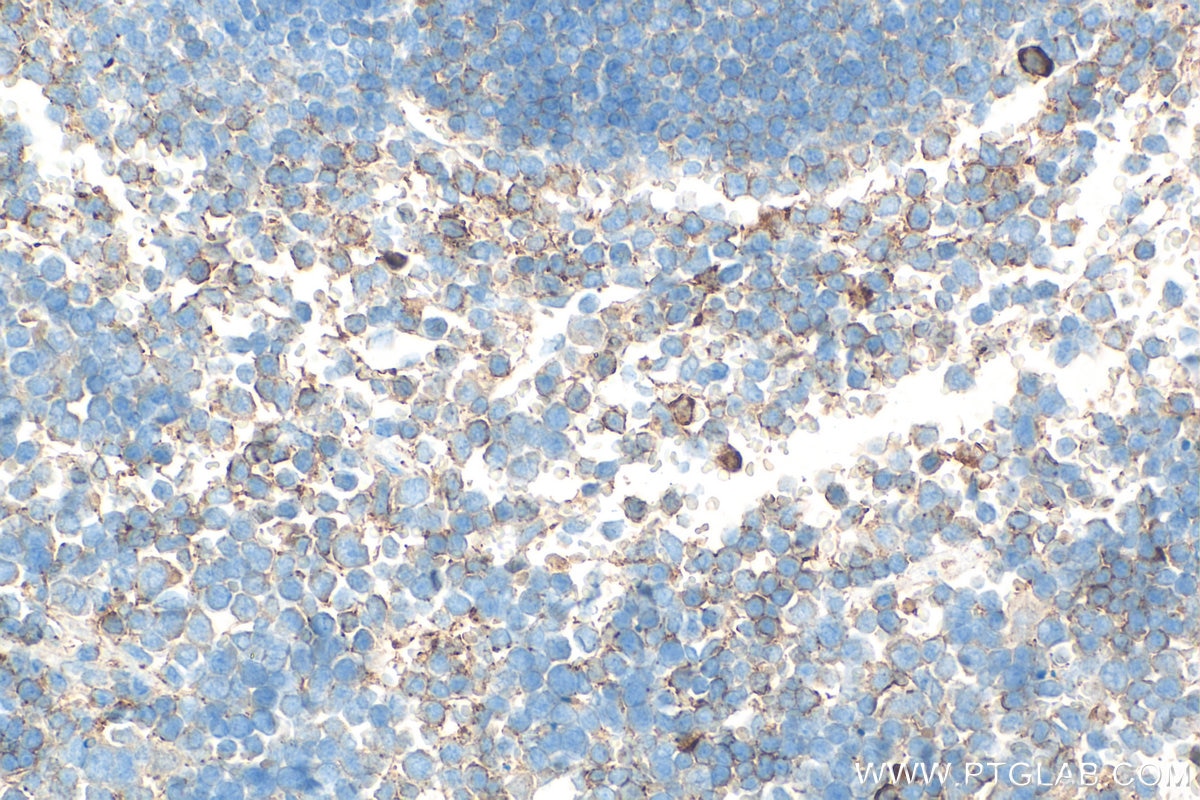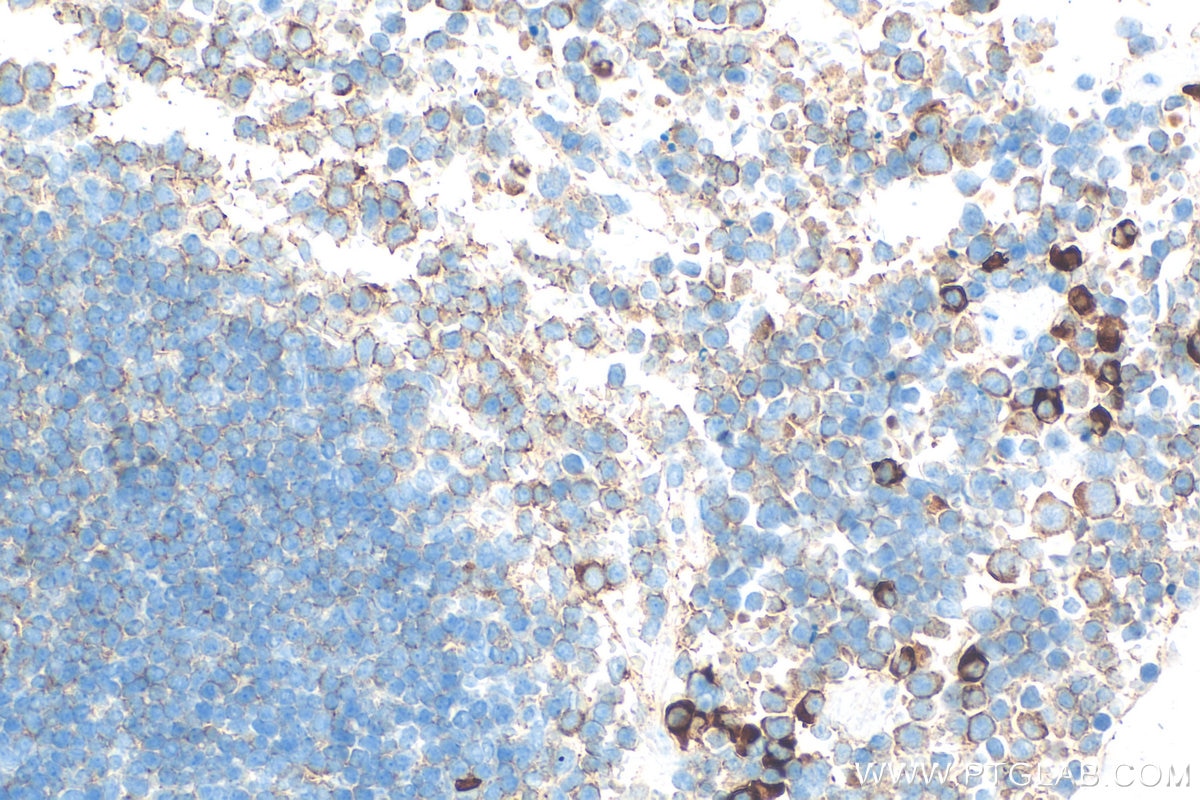Tested Applications
| Positive IHC detected in | mouse spleen tissue Note: suggested antigen retrieval with TE buffer pH 9.0; (*) Alternatively, antigen retrieval may be performed with citrate buffer pH 6.0 |
Recommended dilution
| Application | Dilution |
|---|---|
| Immunohistochemistry (IHC) | IHC : 1:50-1:500 |
| It is recommended that this reagent should be titrated in each testing system to obtain optimal results. | |
| Sample-dependent, Check data in validation data gallery. | |
Product Information
32743-1-AP targets Tnfsf18 in IHC, ELISA applications and shows reactivity with mouse samples.
| Tested Reactivity | mouse |
| Host / Isotype | Rabbit / IgG |
| Class | Polyclonal |
| Type | Antibody |
| Immunogen | Tnfsf18 fusion protein Eg2850 Predict reactive species |
| Full Name | tumor necrosis factor (ligand) superfamily, member 18 |
| Calculated Molecular Weight | 20 kDa |
| GenBank Accession Number | NM_183391.3 |
| Gene Symbol | Tnfsf18 |
| Gene ID (NCBI) | 240873 |
| Conjugate | Unconjugated |
| Form | Liquid |
| Purification Method | Antigen affinity Purification |
| UNIPROT ID | Q7TS55 |
| Storage Buffer | PBS with 0.02% sodium azide and 50% glycerol, pH 7.3. |
| Storage Conditions | Store at -20°C. Stable for one year after shipment. Aliquoting is unnecessary for -20oC storage. 20ul sizes contain 0.1% BSA. |
Background Information
Tnfsf18 (Tumor necrosis factor ligand superfamily member 18), also known as GITRL (Glucocorticoid-Induced TNF Receptor Ligand), is a cytokine belonging to the tumor necrosis factor (TNF) ligand family. Tnfsf18 regulates T cell activation and the positive regulation of NF-κB transcription factor activity. TNFSF18 has been implicated in various inflammatory conditions.
Protocols
| Product Specific Protocols | |
|---|---|
| IHC protocol for Tnfsf18 antibody 32743-1-AP | Download protocol |
| Standard Protocols | |
|---|---|
| Click here to view our Standard Protocols |





